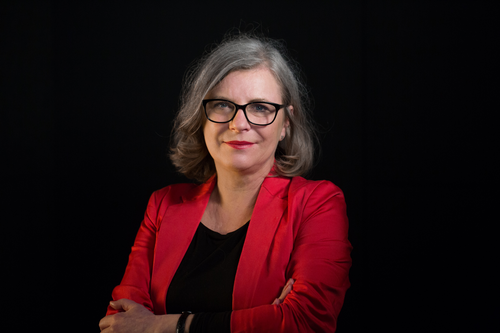For several years I have been cooperating with the team of dr Dorota Kamińska from the Institute of Mechatronics and Information Systems of the Lodz University of Technology in the area of using virtual reality in psychotherapy and education that increases the level of empathy. This initially informal cooperation has translated into the implementation of two grants: The use of virtual reality and bilateral simulation in stress reduction in adults (NCN Miniatura) and the international Erasmus+ project entitled VRXanny. The use of virtual reality in the reduction of anxiety and stress in students
explains dr hab. Dorota Merecz-Kot.

In both projects, researchers are developing software that will be used to alleviate symptoms of stress and its negative effects, such as symptoms of anxiety or depressed mood.
Our idea is a response to the high social demand for psychological support. The number of people complaining about various mental health problems and the limited availability of professional support from psychologists, psychotherapists and psychiatrists is still growing
adds the researcher.
Researchers are using possibilities offered by virtual reality to support people with emotional problems. It can be an effective method that complements classic psycho- and pharmacotherapy, and a way to reduce the mental burden of people struggling with chronic or acute stress. After the outbreak of the war in Ukraine, the team made it possible for refugees staying in our city to use virtual relaxation.
Virtually everyone can enjoy benefits of VR. People suffering from epilepsy and simulator disease (in simple terms – analogous to travel sickness) are an exception. It is already known that a one-time training in VR improves its user's well-being. We now need to study the constancy of this effect and determine the number of relaxation sessions in VR, which will provide a stable improvement in mood.
Of course, VR itself has no healing properties. However, it is an environment that provides opportunities to use relaxation techniques and techniques used in psychotherapy to alleviate the symptoms of anxiety and tension without the need to involve specialised personnel. We believe (and it has been confirmed by our pilot studies) that using our software strengthens mental health
explains Dorota Merecz-Kot.
We have completed project work on software for adolescents and adults, in which we use breathing techniques, visualisation and bilateral stimulation, in order to reduce the level of stress and anxiety, bring users into a state of mental balance and pleasant calming. It is particularly important for us to use bilateral stimulation (following with your eyes the point of light moving from one edge to the other of the field of view), which is used in trauma therapy. In our project, this stimulation is of particular importance – thanks to it we accelerate the achievement of a state of relaxation and calmness and detachment from intrusive and stressful thoughts. We also plan to develop similar software for younger users
sums up the researcher.
A virtual reality session does not require complicated infrastructure. You need software, goggles and a comfortable swivel chair as well as the willingness to plunge into the world created by us, which gives a sense of comfort, security, no need to hurry and the absence of any compulsions and duties.
Source: dr hab. Dorota Merecz-Kot
Edit: Promotion Centre of the university of Lodz
